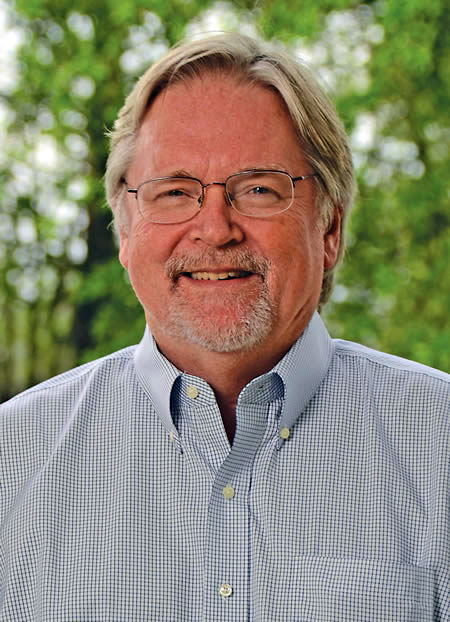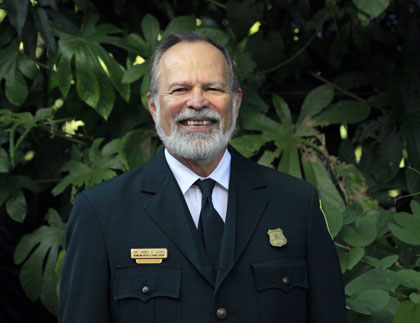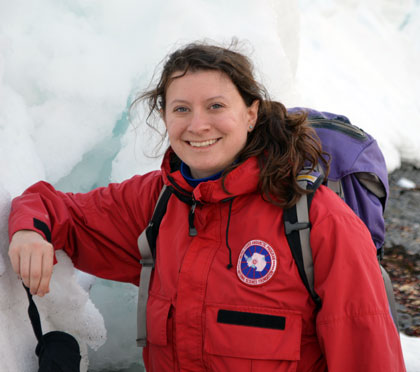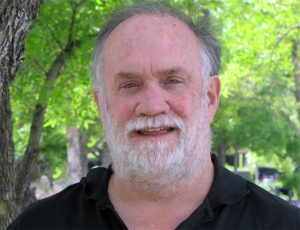Plenary Sessions
Opening Plenary
Sunday, August 5, 2018, 5 PM
La Nouvelle Orleans Ballroom,
Ernest N. Morial Convention Center
Presider: Catherine O’Riordan, ESA Executive Director
Speaker: Robert R. Twilley, Louisiana State University
The event is free and open to the general public and will be live-streamed – watch it here
https://www.youtube.com/watch?v=tN5U_pd4ZBY on
Sunday, August 5 at 5:00 PM CDT (Central Daylight Time)
UTC / GMT -5 hours.
“Ecosystem design approaches in a highly engineered landscape of the Mississippi River Delta”
River deltas all over the world are sinking beneath sea-level rise, causing significant threats to natural and social systems. This is due to the combined effects of anthropogenic changes to sediment supply and river flow, subsidence, and sea level rise, posing an immediate threat to the 500-1,000 million residents who live on deltaic coasts, many in megacities. The Mississippi River Deltaic Plain (MRDP) provides examples for many of the functions and feedbacks regarding how human river management has impacted source-sink processes in coastal deltaic basins, resulting in human settlements more at risk to coastal storms. The survival of human settlement on the MRDP is, arguably, coupled to a shifting mass balance between a deltaic landscape occupied by either land built by the Mississippi River or water occupied by the Gulf of Mexico.

Non-market values of natural systems, particularly those in large dynamic landscapes such as coastal deltas, are not realized until some major disturbance makes us aware of the true long-term cumulative impacts. Such is the case of the Mississippi River Basin, where a history of alternative designs to control floods and promote the economic development associated with navigation have eclipsed the long-term value of the entire system in all its complexity. This presentation will describe ecosystem design approach to link multiple-purpose needs of the diverse services and stakeholders that a large river system and coastal network provides.
The combination of systems and design thinking focuses on a three-layered framework integrating ecosystem, economy, and community resulting in an ecosystem design plan for a more sustainable coast. The goals of the ecosystem design framework include aggressive reconnections of Mississippi River’s natural flood pulse to the coastal landscape, transforming flood control to controlled floods, relocating port operations, and developing delta communities along a more consolidated deltaic landscape. The ecosystem design framework plan lays out a vision over the next four generations for restoring the environment and leveraging the natural ability of human settlement to adapt and change to a long-term vision of the Mississippi River Delta.
Brief Bio
Robert Twilley is executive director of the Louisiana Sea Grant College Program and a distinguished professor in the Department of Oceanography and Coastal Science at Louisiana State University. He has developed a career balancing productive contributions in university research, leadership in university program development, and science communication associated with public policy concerning the value of ecosystem restoration. For the past two years, he has served as president of the Coastal and Estuarine Research Federation, an international organization of scientists and managers who focus on coastal issues. He has published extensively on mangrove ecology, and has been involved in developing engineering designs to rebuild coastal and wetland ecosystems.
Dr. Twilley has worked on some of the largest ecosystem restoration efforts in the world, including Mississippi River Delta, Chesapeake Bay, Florida Everglades, and mangrove conservation and restoration throughout the neotropics (Ecuador, Colombia, Venezuela, and Mexico). More recently, he developed comprehensive research projects to restore wetlands in the Mississippi River Delta, leading several large projects funded by National Science Foundation. These projects include Co-PI of the National Center for Earth Surface Dynamics, Delta Dynamics Collaboratory, and NSF Coastal SEES. He has also served the state of Louisiana in several capacities as science advisor to coastal restoration planning projects, including the Louisiana Coastal Area (LCA) plan, 2007 and 2012 Louisiana Coastal Master Plans, and regional planning following Hurricanes Katrina and Rita known at Louisiana Speaks. He initiated the development of the Coastal Emergency Risk Assessment (CERA) software to visualize storm surge forecasts of coastal flooding associated with tropical cyclones.
Scientific Plenary and ESA Awards Session
Presider: Rich Pouyat, ESA President
Keynote Speaker: Ariel E. Lugo, International Institute of Tropical Forestry, USDA Forest Service
“Adaptations and Resilience of Social-Ecological Systems to Extreme Events: Examples from the Caribbean”
Ecologists increasingly challenge ecological paradigms developed during Holocene conditions because they are not effective for understanding and conserving ecosystems in the Anthropocene. In the 1970s ecologists agreed that tropical ecosystems were fragile.  Today, ecologists focus on the resilience and adaptability to disturbances of tropical ecosystems, not their fragility. Similarly, ecologists have traditionally considered human activity as an external disturbance of “natural” ecosystems, but in the Anthropocene, the notion of “naturalness” is challenged and humans are considered part of ecological systems; hence the notion of social-ecological systems. Human wellbeing is dependent on the functioning and adaptation of social-ecological systems to extreme events. Increasing frequency of extreme events during the Anthropocene will challenge the adaptability of social-ecological systems. Caribbean islands are excellent models of the Anthropocene, because of the intensity of human activity and the high levels of commercial and biodiversity interchange with the rest of the world. Moreover, these islands are exposed to extreme events such as hurricanes, droughts, floods, and economic collapses that threaten human wellbeing. I will define and compare extreme events in relation to the effects on the functioning of insular social-ecological systems, and explore how social-ecological systems adapt to changing environmental conditions and contribute to human wellbeing. Popular management recommendations for resilience based on the Holocene, do not apply to the Anthropocene, but can work in the opposite direction by reducing resilience and adaptability. An example is the eradication of non-native species solely because of their geographic origin while ignoring their ecological roles under novel environmental conditions.
Today, ecologists focus on the resilience and adaptability to disturbances of tropical ecosystems, not their fragility. Similarly, ecologists have traditionally considered human activity as an external disturbance of “natural” ecosystems, but in the Anthropocene, the notion of “naturalness” is challenged and humans are considered part of ecological systems; hence the notion of social-ecological systems. Human wellbeing is dependent on the functioning and adaptation of social-ecological systems to extreme events. Increasing frequency of extreme events during the Anthropocene will challenge the adaptability of social-ecological systems. Caribbean islands are excellent models of the Anthropocene, because of the intensity of human activity and the high levels of commercial and biodiversity interchange with the rest of the world. Moreover, these islands are exposed to extreme events such as hurricanes, droughts, floods, and economic collapses that threaten human wellbeing. I will define and compare extreme events in relation to the effects on the functioning of insular social-ecological systems, and explore how social-ecological systems adapt to changing environmental conditions and contribute to human wellbeing. Popular management recommendations for resilience based on the Holocene, do not apply to the Anthropocene, but can work in the opposite direction by reducing resilience and adaptability. An example is the eradication of non-native species solely because of their geographic origin while ignoring their ecological roles under novel environmental conditions.
Brief Bio
Ariel Lugo is a native Puerto Rican with a PhD from the University of North Carolina at Chapel Hill. He is a Life Member of the Ecological Society of America and current Director of the USDA Forest Service International Institute of Tropical Forestry. Previously he taught at the University of Florida at Gainesville and was a Staff Member at the President’s Council on Environmental Quality in Washington DC.
Lugo has worked on mangroves and freshwater wetlands; dry, moist, wet, and rain forests; and tropical tree plantations. He is currently dedicated to the study of tropical cities and novel forests. His interests are in ecosystem functioning with a focus on nutrient and carbon cycling, and has a publication output of about 530 papers with over 30,000 citations. The United Nations named him a Forest Hero for his work with mahogany and community forestry.
Recent Advances Lecture
La Nouvelle Orleans Ballroom, Ernest N. Morial Convention Center
Presider: Tim Schowalter, ESA Program Chair
Guest Lecturer: Lauren E. Culler, Dartmouth College
“Mosquitoes in the Arctic: Indicators of rapid change in coupled human and natural ecosystems”
The Arctic is a showcase for the interplay of ecology and society in a rapidly changing world.  Temperatures in the Arctic are rising about twice as fast as the global average, driving a cascade of abiotic and biotic effects on the structure and function of Arctic ecosystems. In this lecture, I highlight recent advances in our understanding of the causes and consequences of rapid Arctic environmental change. I draw from my research on the ecology of Arctic mosquitoes and aquatic ecosystems to demonstrate 1) strong ecological responses to climate variation, including extreme events, and 2) how these responses are relevant to animal and human systems in the north. I will discuss how the integration of empirical research, biological monitoring, and community engagement are key for advancing the theoretical understanding of Arctic ecology and for anticipating and responding to impacts on human well-being. People and ecosystems in the Arctic will continue to be disproportionately affected by rapid environmental change, but what happens in the Arctic is also a bellwether of what’s to come for the rest of the world in the Anthropocene.
Temperatures in the Arctic are rising about twice as fast as the global average, driving a cascade of abiotic and biotic effects on the structure and function of Arctic ecosystems. In this lecture, I highlight recent advances in our understanding of the causes and consequences of rapid Arctic environmental change. I draw from my research on the ecology of Arctic mosquitoes and aquatic ecosystems to demonstrate 1) strong ecological responses to climate variation, including extreme events, and 2) how these responses are relevant to animal and human systems in the north. I will discuss how the integration of empirical research, biological monitoring, and community engagement are key for advancing the theoretical understanding of Arctic ecology and for anticipating and responding to impacts on human well-being. People and ecosystems in the Arctic will continue to be disproportionately affected by rapid environmental change, but what happens in the Arctic is also a bellwether of what’s to come for the rest of the world in the Anthropocene.
Brief Bio
Lauren E. Culler is an ecologist who has been studying Arctic insect community dynamics since 2009. She is a Research Assistant Professor of Environmental Studies at Dartmouth College, and, as outreach coordinator at Dartmouth’s Institute of Arctic Studies, leads NSF-funded student science expeditions to Greenland and Antarctica.
New Phytologist Trust Keynote Speaker
La Nouvelle Orleans Ballroom, Ernest N. Morial Convention Center
Guest Lecture: David Schimel, Jet Propulsion Lab
“Cuvettes and flux towers in the sky: the promise of contemporary remote sensing for planetary plant science.
New remote sensing techniques provide observations corresponding to many of the most common field and lab plant science measurements. New sensors and retrieval techniques for solar-induced fluorescence, evapotranspiration, leaf water content and water potential, chlorophyll, nutrient content and even species diversity provide new tools at new scales for plant biology. Coverage by these measurements is becoming more and more frequent and widespread, and will be further enhanced by planned and proposed new missions, as well as via aircraft sensors. Remote observations now characterize many of the measures used to index plant performance and stress in situ, but for plant communities and across large areas. These new measurements have already challenged many long-held assumptions about vegetation response to climate and are transforming out understanding of our living planet.
New sensors and retrieval techniques for solar-induced fluorescence, evapotranspiration, leaf water content and water potential, chlorophyll, nutrient content and even species diversity provide new tools at new scales for plant biology. Coverage by these measurements is becoming more and more frequent and widespread, and will be further enhanced by planned and proposed new missions, as well as via aircraft sensors. Remote observations now characterize many of the measures used to index plant performance and stress in situ, but for plant communities and across large areas. These new measurements have already challenged many long-held assumptions about vegetation response to climate and are transforming out understanding of our living planet.

